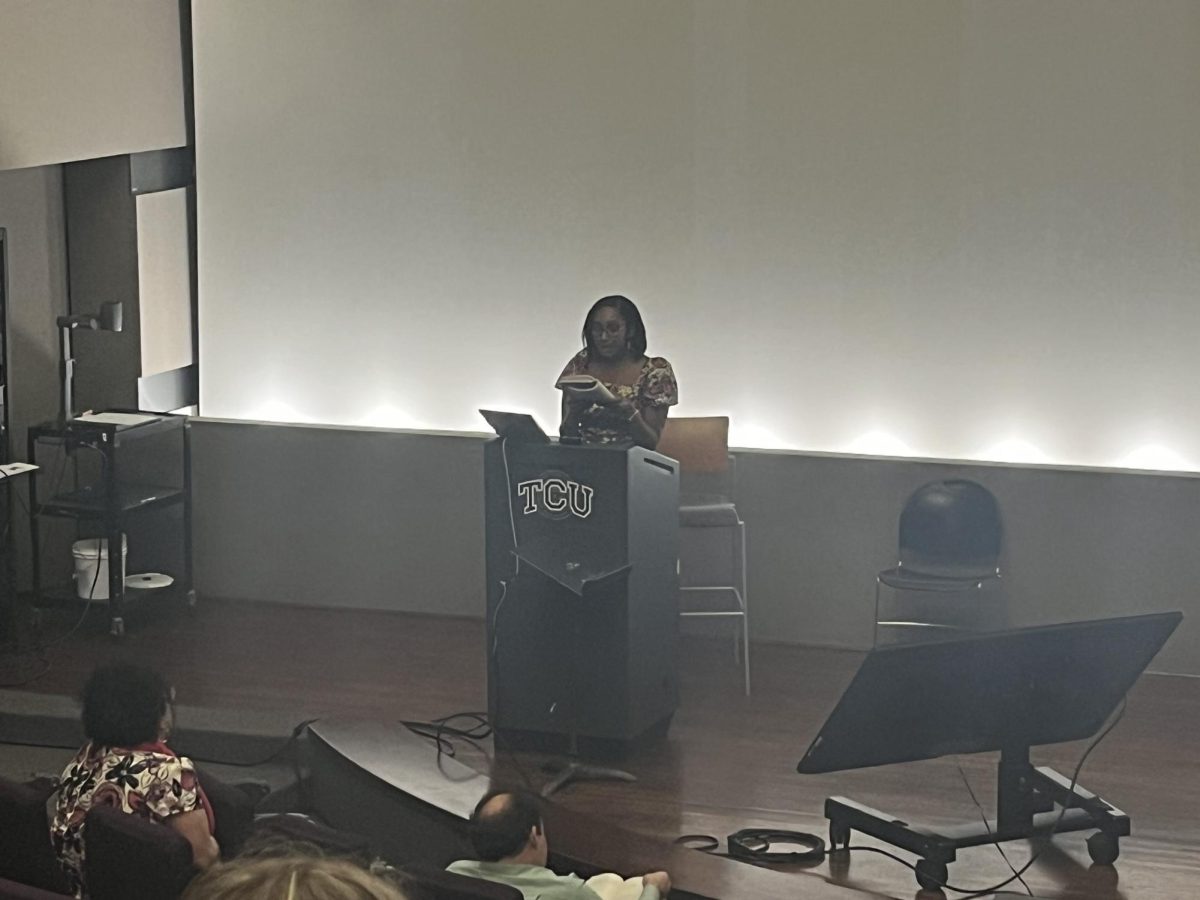As enrollment grows in size, so does the number of green and sustainable programs on campus.
According to the Princeton Review, the university is one of the most “environmentally-responsible” college campuses in the nation. The university began its green movement in 1996, the university website states.
Sustainability is the act of “meeting today’s needs without compromising the needs of tomorrow,” said Keith Whitworth, professor of sustainability. Sustainable acts include recycling, commuting and being green, he said.
Even the debris from demolished buildings is being reused, according to the sustainability website. The university has a long list of goals and expectations for the campus to meet as quickly as possible.
TCU Police Chief Steven McGee said the most sustainable part of campus is the Physical Plant. The Physical Plant switched to electric and compact vehicles to downsize from the trucks previously used. With this switch, they consume less gasoline, reducing their carbon footprint. Furthermore, they reuse grass and hedge clippings to fertilize and fill flowerbeds instead of purchasing additional mulch.
The university administration is currently switching to a paperless system, according to university's sustainability website. About 75 percent of the paper used on campus is recycled, and numerous departments are now moving to all-digital records and communication.
There are three Leadership in Energy and Environmental Design (LEED) certified buildings on campus, Whitworth said.
The first LEED-certified building was Scharbauer Hall. LEED requirements include where the energy comes from and showers for people who bike to class, he said. Both Sherley and the new Mary Wright Admissions Building are LEED certified, as well.
The addition of motion sensing lights and updated light bulbs conserve more energy, according to the sustainability website. While most buildings are not LEED certified, steps have been taken to make them more sustainable. Soon, outdoor sprinkler heads will also be updated to shut off when it is raining.
According to the sustainability website, there is a repair center for bikes at the University Recreation Center, encouraging students to reduce their own carbon footprint by biking instead of driving.
All students can also pick up a free public transit card at the TCU Police Department, which gives them free use of public transportation such as The “T”, TRE and DART. Whitworth said he sometimes takes the bus from his home in Cleburne all the way to campus.
Some departments, like the TCU Police Department, are not yet sustainable, McGee said. it is hard for them to be sustainable when their main goal is the safety of students and faculty on campus.
For example, the police department does not use electric golf carts because the batteries die too quickly, and they must ensure they can see everything going on while on patrol, McGee said.
However, some students do not see a lot of the sustainable measures undertaken on campus.
Scott Thompson, a senior strategic communications major, said he did not see a lot of the sustainable things being done on campus. The main thing he said was the lack of recycling bins. He said he noticed them in the dorms, but not a lot of places on campus.
Whitworth said there are a multitude of student organizations that focus on sustainability. These organizations include the Environmental Club and the Society of Sustainability. The university also offers multiple classes that discuss sustainability and the green movement.





